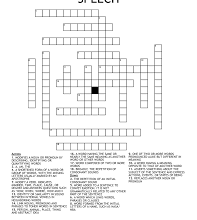Look out for 8000 km to miles

Are 8000 km to miles you ready to embark on a journey from kilometers to miles? Strap in as we explore the dynamic world of metric and imperial systems, unraveling the mystery behind 8000 km converted into miles. Join us on this educational adventure filled with conversion tips, common mistakes, and real-life applications. Let’s dive in!
Understanding the Metric System and Imperial System
The metric system, widely used around the world, is based on units of ten. It includes measurements like meters for length and kilograms for weight. On the other hand, the imperial system is more common in the United States and uses units like feet and pounds. Understanding these systems is key to converting between kilometers and miles accurately.
While kilometers are used in most countries to measure distance, miles are primarily used in the US and a few other places. Knowing how these systems differ can help you navigate conversions seamlessly.
Both systems have their own unique set of units that serve specific purposes. Whether it’s measuring a road trip in miles or calculating distances in kilometers for international travel, being familiar with both systems opens up a world of possibilities.
What is a Kilometer and a Mile?
When it comes to measurements, understanding the difference between a kilometer and a mile is essential. A kilometer is a unit of length in the metric system, equal to 1000 meters. On the other hand, a mile is a unit of length in the imperial system, commonly used in countries like the United States and the United Kingdom.
To put it simply, one kilometer is equivalent to approximately 0.621 miles. This means that if you were to convert 8000 kilometers into miles, you would get around 4971 miles. While both units measure distance, they are not interchangeable due to their different values.
Whether you’re planning a road trip or analyzing workout distances, knowing how to convert between kilometers and miles can come in handy. So next time you see signs indicating kilometers but prefer miles, remember that conversion can make your life easier.
Why Do We Need to Convert Kilometers to Miles?
Have you ever wondered why we need to convert kilometers to miles? Well, it all comes down to the differences between the metric system and the imperial system. Each system has its own unit of measurement for distance – kilometers in the metric system and miles in the imperial system.
When traveling or communicating internationally, understanding both systems becomes crucial. For example, if you’re planning a road trip in Europe where distances are typically measured in kilometers but you come from a country that uses miles, knowing how to convert between the two can make your journey smoother.
Converting kilometers to miles allows for better comprehension and accuracy when dealing with different units of measurement. It helps avoid confusion and ensures precise calculations when estimating distances or planning routes.
Being able to convert between kilometers and miles opens up opportunities for seamless cross-cultural communication and navigation.
How to Convert Kilometers to Miles?
So, you’ve got a distance in kilometers and need to convert it to miles? No worries, it’s simpler than you think. To make this conversion, you can use a straightforward formula that helps you switch between these two measurement systems effortlessly.
First things first, let’s recall the basic conversion factor: 1 kilometer is approximately equal to 0.621371 miles. Keep this number handy for your calculations. Now, all you have to do is multiply the number of kilometers by this conversion factor to get the equivalent distance in miles.
For example, if you want to convert 50 kilometers into miles, just multiply 50 by 0.621371. The result? Approximately 31.07 miles – easy peasy! Remembering this quick formula can come in handy when dealing with distances across different units of measurement.
Common Conversion Mistakes and How to Avoid Them
When it comes to converting kilometers to miles, there are some common mistakes that people often make. One of the most frequent errors is mixing up the formulas for conversion. To avoid this mistake, always double-check the formula you are using before making any calculations.
Another common mistake is not being precise with decimal points when converting. It’s crucial to pay attention to these details to ensure accurate conversions every time. Always take your time and double-check your work.
Confusing units of measurement can also lead to errors in conversions. Make sure you clearly understand the difference between kilometers and miles before attempting any conversions. This will help prevent mix-ups and inaccuracies in your calculations.
Rushing through conversions without verifying your results can result in mistakes. Take a moment to review your work and confirm that your answer makes sense based on what you know about distances in kilometers and miles.
Importance of Accurate Conversions in Real Life
Accurate conversions from kilometers to miles play a crucial role in our daily lives, whether we realize it or not. From planning road trips and estimating travel distances to understanding international measurements on packaging labels, the ability to convert between these units is essential.
Imagine setting out for a weekend getaway with friends and relying on accurate distance measurements to plan your route efficiently. One small miscalculation could lead you astray, wasting time and causing unnecessary stress along the way.
In addition, accurate conversions are vital for industries such as aviation, shipping, and logistics where precise measurements can impact safety, efficiency, and cost-effectiveness. Ensuring that conversions are done correctly can prevent costly errors and potential risks.
Moreover, in a globalized world where businesses operate across borders, being able to convert between kilometers and miles accurately is key for successful communication and collaboration.
The importance of accurate conversions in real life cannot 8000 km to miles be overstated; they contribute significantly to smoother operations in various aspects of our day-to-day activities.
Conclusion
Understanding how to convert kilometers to miles is essential for everyday life. Whether you’re planning a road trip, tracking your running distance, or simply trying to comprehend distances in different units, knowing how to make these conversions accurately can make a significant difference. By mastering the conversion process and being aware of common mistakes to avoid, you can ensure precision in your calculations and measurements. So next time you encounter the need to convert 8000 km to miles or any other distance, you’ll be well-equipped with the knowledge to do so confidently and correctly.




